India-Latin America Engagements, December 2013
In 'India-Latin America Engagements', the Latin America Desk at Gateway House presents a selection of news of India’s engagement with the region during the previous month
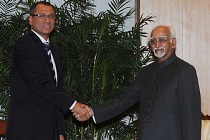 Courtesy: Ministry of External Affairs, India
Courtesy: Ministry of External Affairs, India
In 'India-Latin America Engagements', the Latin America Desk at Gateway House presents a selection of news of India’s engagement with the region during the previous month
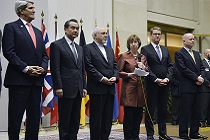 Courtesy: European External Action Service
Courtesy: European External Action Service
On November 24, the P5+1 and Iran reached a consensus on the interim agreement regarding Tehran’s long-disputed nuclear program. How comprehensive is this agreement, and what are its potential upshots for U.S., and West Asia – especially Israel and Saudi Arabia? More importantly, can India play a positive role?
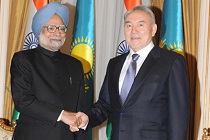 Courtesy: Prime Minister's Office, India
Courtesy: Prime Minister's Office, India
The current political, strategic and economic scenarios, both regionally and internationally, present immense potential for India and Kazakhstan to enhance their engagement, qualitatively and quantitatively. Why must New Delhi and Astana forge stronger and deeper relations with each other?
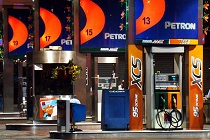 Courtesy: counting chest bullets/Flickr
Courtesy: counting chest bullets/Flickr
In recent years, U.S. oil and gas imports have declined due to the development of shale resources in the country. How will the production of shale oil, increase in oil production by non-OPEC countries, supply disruptions in West Asia and economic growth in India and China impact global crude oil prices?
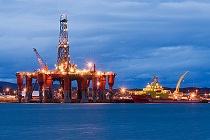 Courtesy: Berardo62/Flickr
Courtesy: Berardo62/Flickr
India’s oil imports from Latin America increased from 4.5% in 2003 to 11% in 2012-13. This marks a diversification in India’s energy policy. With Latin America’s surplus energy production and discoveries in off-shore oil fields, India must further consolidate its oil trade with the region
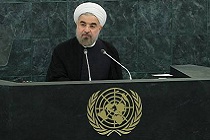 Courtesy: Office of the President of Iran
Courtesy: Office of the President of Iran
In recent days, both the U.S. and Iran have intimated that they seek a broad improvement in relations, signalling a welcome thaw in bilateral ties. What does this mean for Tehran and Washington, and more importantly, how will this development play out in the West Asian region?
 Courtesy: millerm217/Flickr
Courtesy: millerm217/Flickr
India’s extreme dependence on imported energy often renders our economy vulnerable in the face of geopolitical changes. Given the high financial viability, India, being the world’s second-largest producer of sugarcane, should emulate Brazil by replacing petrol with ethanol as fuel.
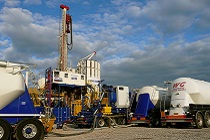 Courtesy: Justin Woolford/Flickr
Courtesy: Justin Woolford/Flickr
India’s ability to meet its growing gas demand from shale depends on the availability of land and water, and minimising social and environmental costs. The government’s 2012 draft shale gas policy does not offer solutions. How can India create a stable investment environment for the shale gas market?
 Courtesy: Yassin/Flickr
Courtesy: Yassin/Flickr
Brazil, despite the presence of good leadership, several consistent and successful development programs, and recording their lowest unemployment rate, witnessed widespread protests this June – triggers for which weren't conventional. What are the Brazilians protesting against, and what does it indicate?
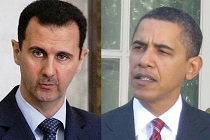 Courtesy: Freedom House/Flickr
Courtesy: Freedom House/Flickr
Despite rising international opposition, U.S. President Barack Obama is ready to penalise the Syrian regime for an alleged chemical attack in Ghouta, Syria, last month. The justifications given by the U.S. for an armed attack are questionable, and such retaliatory action will destabilise the entire region